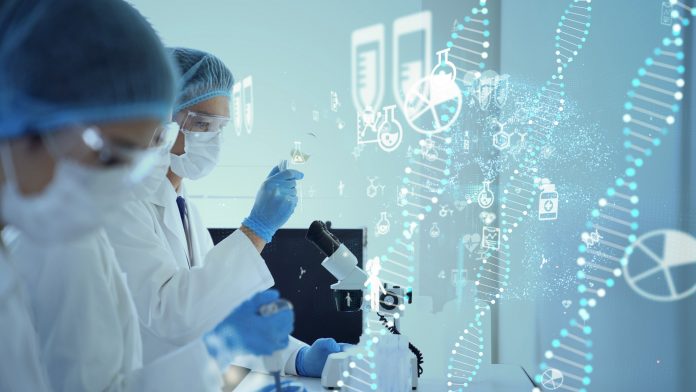Researchers from Chalmers University of Technology in Sweden have developed a method of developing protein-based drugs using artificial intelligence.
Proteins are large molecules that play significant roles in all living cells, building, modifying, and breaking down other molecules naturally inside our cells.
Protein-based drugs are widely used, with insulin, the diabetes drug, being the most prescribed. Various cancer treatments as well as antibody formulas currently being used to treat COVID-19, are also protein based.
Current methods used for engineering proteins are reliant on the introduction of random mutations to protein sequences. However, with each additional random mutation introduced, the protein activity declines.
The research team’s new results, that have been published in the journal Nature Machine Intelligence, represent a breakthrough in the field of synthetic proteins.
Aleksej Zelezniak, Associate Professor at the Department of Biology and Biological Engineering at Chalmers University of Technology, commented: “What we are now able to demonstrate offers fantastic potential for a number of future applications, such as faster and more cost-efficient development of protein-based drugs.
“Consequently, one must perform multiple rounds of very expensive and time-consuming experiments, screening millions of variants, to engineer proteins and enzymes that end up being significantly different from those found in nature.. This engineering process is very slow, but now we have an AI-based method where we can go from computer design to working protein in just a few weeks.”
Zelezniak’s research group and collaborators have developed an AI-based approach called ProteinGAN, which uses a generative deep learning approach.
In this method, the Artificial Intelligence is provided with a large amount of data from well-studied proteins. In studying this data, it attempts to create new proteins based on it.
Simultaneously, another part of the AI figures out if the synthetic proteins are fake or not. The proteins are sent back and forth in the system until the AI cannot tell apart natural and synthetic proteins anymore.
The proteins used in everyday products are not necessarily natural and can be made through synthetic biology and protein engineering techniques. Using these techniques, the original protein sequences are modified in the hope of creating synthetic novel protein variants that are more efficient, stable, and tailored towards particular applications.
The group’s new AI-based approach is significant for the for development of efficient industrial enzymes, as well as new protein-based drugs, such as antibodies and vaccines.
“This kind of work is only possible in the type of multidisciplinary environment that exists at our division – at the interface of computer science and biology. We have perfect conditions to experimentally test the properties of these AI-designed proteins,” said Zelezniak.
Going forward, the researchers will investigate how this new technology could be used for specific improvements to protein properties, such as increased stability, which could lead to great advancements for proteins used in industrial technology.









